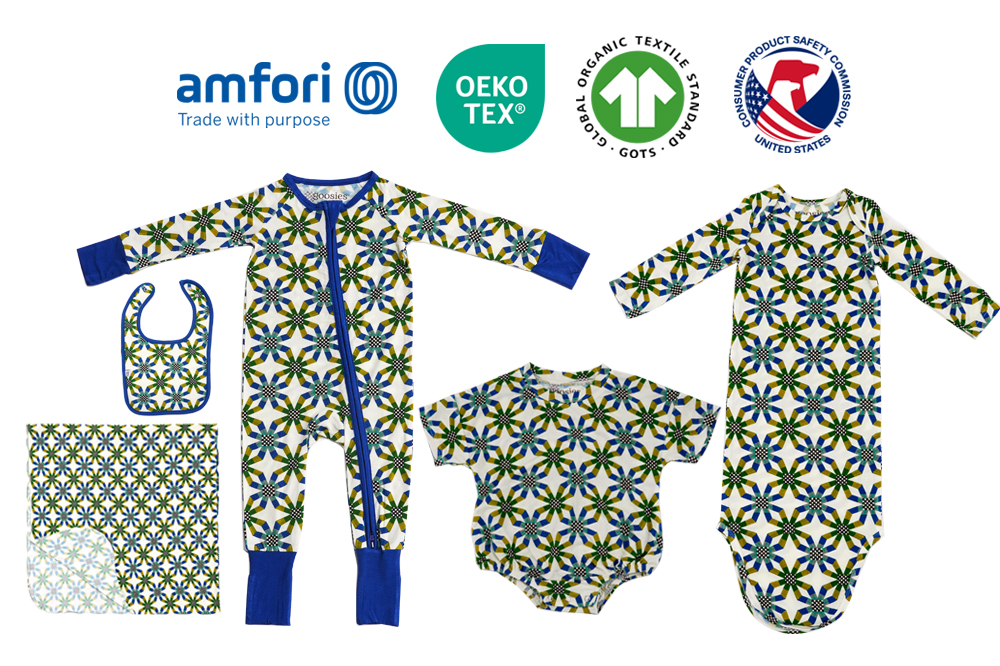
In today's eco-conscious world, parents are increasingly seeking sustainable options for their children's clothing. Among these, organic cotton stands out as a game changer. As a leading choice for baby garments, organic cotton not only prioritizes your child's comfort but also contributes positively to the environment. This article delves into the significance of organic cotton in baby clothing, its benefits, and why it is a crucial choice for parents committed to sustainability.
What is Organic Cotton?
Organic cotton is produced without the use of synthetic pesticides, herbicides, or fertilizers, ensuring a more environmentally friendly growing process. Unlike conventional cotton, which often relies on harmful chemicals, organic cotton is cultivated using methods that sustain the health of the ecosystem and reduce pollution.
Certified Organic Cotton: The Gold Standard
One of the key factors that set organic cotton apart is its certification. Only certified organic cotton meets international standards such as GOTS (Global Organic Textile Standard), ensuring that it adheres to strict environmental and social criteria throughout its entire lifecycle, from farming to production. This certification guarantees that the fabric is free from toxic chemicals and safe for babies' sensitive skin.
Benefits of Organic Cotton for Baby Clothing
1. Gentle on Sensitive Skin
Babies have delicate skin that is more susceptible to irritations and allergies. Organic cotton, being free from harsh chemicals, offers a soft and gentle touch that minimizes the risk of skin reactions. This is especially important for infants who may spend most of their day in contact with their clothing.
2. Sustainable Farming Practices
Choosing organic cotton supports sustainable agricultural practices that prioritize soil health, biodiversity, and water conservation. Organic farming methods reduce the carbon footprint associated with conventional cotton production, making organic cotton a more sustainable choice for eco-conscious parents.
3. No Harmful Chemicals
Conventional cotton farming uses a significant amount of pesticides and fertilizers, which can leach into the soil and water supply, affecting the environment and the health of farmworkers. Organic cotton, on the other hand, eliminates these harmful substances, making it a safer choice not just for babies but also for the planet.
4. Durability and Longevity
Organic cotton is not only soft but also durable. The fibers are typically stronger and longer-lasting than those of conventional cotton, meaning that garments made from organic cotton can withstand the wear and tear of daily use. This durability translates to longer-lasting clothing, reducing the need for frequent replacements.
The Misconception of Other Organic Fabrics
While many consumers associate terms like bamboo, Tencel, and others with organic fabrics, it’s important to note that, as of now, certified organic cotton remains the only widely recognized organic fabric with international certification. While bamboo and Tencel are often marketed as eco-friendly alternatives, they do not yet have the same level of global recognition in terms of organic certification. This can lead to confusion for consumers trying to make informed choices.
How to Choose Organic Cotton Baby Clothes
When shopping for organic cotton baby clothes, consider the following tips:
- Look for Certification: Always check for certifications such as GOTS or OEKO-TEX® to ensure the fabric meets organic standards.
- Read Labels: Labels that indicate the garment is made from 100% organic cotton can provide peace of mind regarding safety and quality.
- Support Sustainable Brands: Choose brands that prioritize sustainability and transparency in their production processes.
Conclusion: A Responsible Choice for Future Generations
Organic cotton is a true game changer in the realm of baby clothing, combining safety, comfort, and sustainability. By choosing organic cotton, parents not only protect their little ones from harmful chemicals but also contribute to a healthier planet. As the awareness of sustainability continues to grow, the demand for organic cotton baby clothes will likely increase, paving the way for a more eco-friendly future.